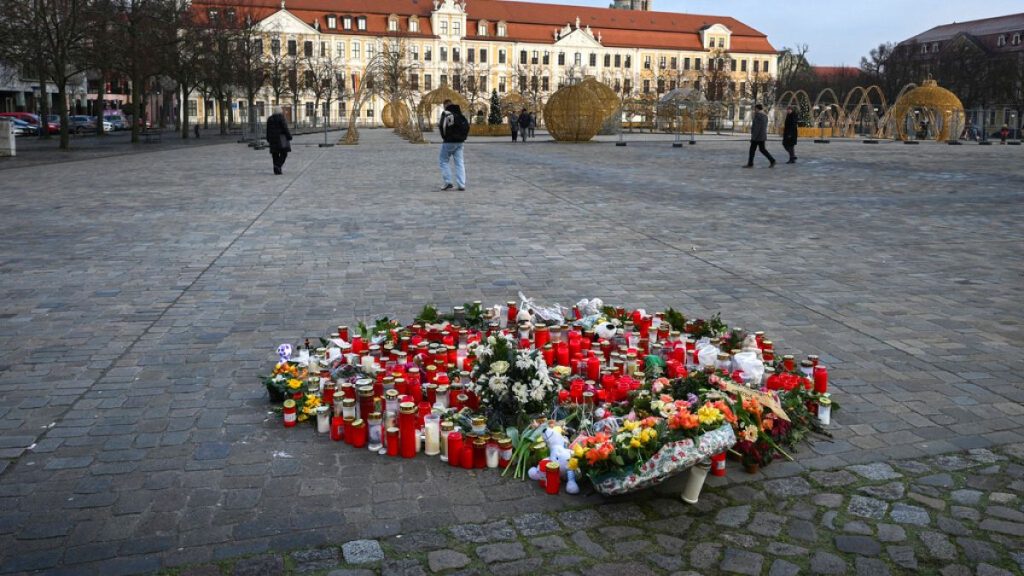The Christmas market attack in Magdeburg, Germany, tragically claimed the life of a sixth victim, a 52-year-old woman who succumbed to her injuries in the hospital. This somber development adds to the already devastating toll of the December 20th attack, which initially claimed the lives of four women between the ages of 45 and 75, and a nine-year-old boy. The incident also resulted in injuries to over 200 people, and according to Federal Victim’s Commissioner Roland Weber, a staggering 531 individuals experienced trauma or suffered losses as a direct consequence of the attack. The incident has left an indelible scar on the community, underscoring the vulnerability of public spaces and the enduring impact of such violence.
Following the attack, authorities swiftly apprehended the suspect, Taleb al-Abdulmohsen, a Saudi-born doctor residing in Germany since 2006. Al-Abdulmohsen’s profile deviates from typical perpetrators of similar attacks in Germany, adding a layer of complexity to the investigation. He identified himself as an ex-Muslim and expressed strong criticism of Islam, while simultaneously espousing far-right ideologies online, including narratives against the perceived “Islamization” of Europe. This seemingly contradictory stance has raised questions about his true motives, prompting authorities to urge caution against premature conclusions. Unraveling the intricacies of al-Abdulmohsen’s worldview and motivations remains a central challenge for investigators.
The attack has ignited a debate about whether authorities could have averted the tragedy. Reports have surfaced suggesting that officials had received prior warnings about al-Abdulmohsen’s extreme views. However, despite these tips, authorities deemed him not to pose a significant threat, a judgment now under intense scrutiny. Federal Minister of the Interior Nancy Faeser has pledged a thorough investigation into the authorities’ prior interactions with al-Abdulmohsen, aiming to determine if there were any oversights or failures that contributed to the attack. This examination is crucial for accountability and for identifying potential improvements in threat assessment procedures.
Al-Abdulmohsen is currently in pre-trial detention, facing charges of murder, attempted murder, and dangerous bodily harm. The legal process ahead will aim to establish the full extent of his culpability and ensure justice for the victims and their families. This process is likely to be complex and lengthy, given the intricacies of the case and the need for a thorough investigation into all contributing factors. The trial will also serve as a platform for examining the efficacy of existing security measures and exploring potential preventative strategies for future incidents.
The Magdeburg attack underscores the multifaceted challenges posed by extremism in contemporary society. It highlights the difficulties in identifying and assessing individuals who may pose a threat, particularly when their ideologies and motivations appear contradictory or unconventional. Furthermore, it emphasizes the importance of vigilance in public spaces and the need for robust security measures to protect citizens from acts of violence.
The incident also serves as a stark reminder of the devastating consequences of extremism, regardless of its origin. The human cost of such attacks extends far beyond the immediate victims, impacting families, communities, and the wider society. The tragedy in Magdeburg reinforces the urgent need for concerted efforts to combat extremism in all its forms, fostering tolerance, understanding, and resilience within communities. The path forward necessitates a thorough examination of existing preventative measures, robust community engagement, and a commitment to addressing the root causes of extremism.














